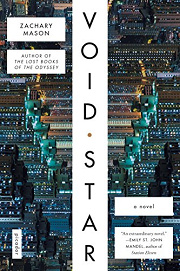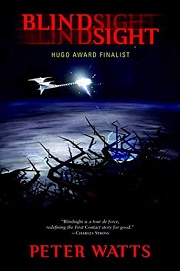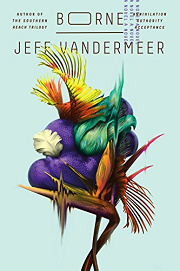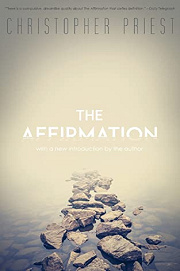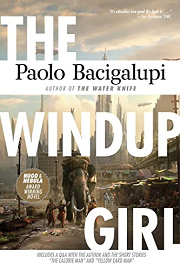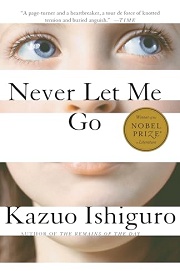Share your thoughts in a quick Shelf Talk!
Void Star by Zachary Mason
In a near-future shaped by flooded coastlines and omnipresent algorithms, three strangers—each haunted by what they can’t forget and what they’re not allowed to know—are drawn into a web of corporate secrets and elusive artificial minds. Lushly written and quietly unsettling, Void Star explores memory, identity, and the uneasy edge where human consciousness brushes against machine intelligence.
Have you read this book? Share what you liked (or didn’t), and we’ll use your answers to recommend your next favorite read!
Love Void Star but not sure what to read next?
These picks are popular with readers who enjoyed this book. Complete a quick Shelf Talk to get recommendations made just for you! Warning: possible spoilers for Void Star below.
In Void Star, did you enjoy ...
... the meditation on consciousness, memory, and non-human intelligence woven through high-tech interfaces?
Blindsight by Peter Watts
If you were drawn to how Irina’s neural implant and the rogue AIs in Void Star blur the boundary between memory architecture and mind, Blindsight will hit that same nerve. Watts throws you into first contact where the real puzzle isn’t the aliens but what “self” even means. Like Mason’s cool, crystalline scenes of artificial minds and human recall-as-technology, Watts dissects cognition under pressure, asking whether awareness is a feature or a bug—only with a terrifyingly plausible scientific edge.
... the dreamlike, hallucinatory urban ruins and biotech-strange imagery?
Borne by Jeff VanderMeer
The drifting, surreal textures you felt moving from Kern’s street-level survival to the uncanny architectures of AI in Void Star echo beautifully in Borne. VanderMeer’s ruined city, living biotech, and shape-shifting creature give that same oneiric thrum—where every alley and organism feels a little impossible and yet emotionally true. If the way Mason made technology feel like myth lodged in your imagination, Borne delivers that same shimmering, unsettling wonder.
... the fractured, memory-haunted storytelling that loops back on itself?
The Affirmation by Christopher Priest
If the nonlinearity of Void Star—slipping among Irina, Kern, and Thales as memory and identity keep refracting—hooked you, The Affirmation is a masterclass in narrative vertigo. Priest folds a life story into a manuscript into a possible other world, letting memory edits and self-reinvention ripple until you question every timeline. It captures that same elusive, cerebral feeling you got as Mason’s plot doubled back and meanings shifted with each new revelation.
... the mosaic of intersecting lives navigating corporate power and precarious futures?
The Windup Girl by Paolo Bacigalupi
If you liked how Void Star braided Irina’s elite consulting, Thales’s entanglements with power, and Kern’s ground-level struggle into a single vision of a tilted world, The Windup Girl offers a similarly rich panorama. Bacigalupi’s multiple perspectives—scientists, enforcers, refugees, and the engineered title character—cross and collide in a fraught Bangkok where every choice has systemic consequences, echoing Mason’s layered, intercut viewpoint tapestry.
... the quiet, intimate probing of identity and what makes a self in a designed life?
Never Let Me Go by Kazuo Ishiguro
If the parts of Void Star that stayed with you were Irina’s struggle to trust her own curated memories and the way personhood blurs around artificial minds, Ishiguro’s novel will resonate. It’s softer in its speculative surface, but the emotional excavation—how memory, conditioning, and purpose shape who you are—cuts just as deep. The slow, devastating revelations mirror Mason’s calm, piercing psychological touch.
Unlock your personalized book recommendations! Just take a quick Shelf Talk for Void Star by Zachary Mason. It’s only a few questions and takes less than a minute.
